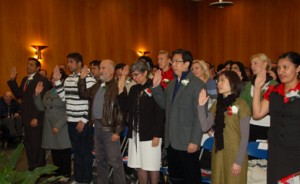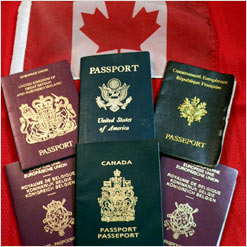The Canadian Experience Class (CEC) has been one of the most popular economic Canadian immigration programs in the past 2 years. As of today, significant changes have been made to the program.

Canadian Experience Class continues to gain momentum as the most popular economic immigration program
Since the Conservative government came to power, Canadian immigration regulations have gone through many changes. These changes have received a mixed reaction from all sides. The government has been loud and clear that it prefers to have its new immigrants with Canadian work experience, as this would make it easier for newcomers who will likely make the most of their abilities while undergoing a more seamless social and economic transition to Canada. So far, over 25,000 have become permanent residents since the CEC program initiated in late 2008. The number of applicants becoming permanent resident through this program continues to climb every year.
Immigration Minister, Chris Alexander announced a few major changes to the program as a measure to make to make the program more ‘efficient’:
“The government is taking concrete action to reduce backlogs and processing times. By making these changes to the Canadian Experience Class, we are moving toward a more effective and efficient immigration system.”
The changes that have been published are:
Between November 9, 2013 to October 31, 2014, Citizenship and Immigration Canada (CIC) will accept a maximum of 12,000 new applications under the CEC.
Because of an overrepresentation in the CEC applications received to date, the following six occupations will no longer be eligible for the CEC starting November 9, 2013:
- cooks (NOC code 6322);
- food service supervisors (NOC 6311);
- administrative officers (NOC 1221);
- administrative assistants (NOC 1241);
- accounting technicians and bookkeepers (NOC 1311); and
- retail sales supervisors (NOC 6211).
CIC already has a large inventory of applications in these occupations and will continue processing them to a final decision.
In addition, CIC will establish sub-caps of 200 applications each for National Occupational Classification (NOC) B occupations. These are mostly technical and administrative jobs or those in the skilled trades. NOC 0 and A (managerial and professional) occupations will not be sub-capped, but they will be subject to the overall cap of 12,000 applications.
Finally, CIC will maintain the same language criteria for applicants but will verify them upfront as of November 9, 2013. The current language requirements are Canadian Language Benchmark (CLB) 7 for NOC 0 and A occupations, and CLB 5 for NOC B occupations. This new measure will ensure that applicants who do not meet the minimum language requirements are screened out earlier and processing resources can be concentrated on those who are more likely to qualify.
At the same time, this is more client-friendly, as applicants who do not have the required language proficiency will have their applications returned to them along with the processing fee.






